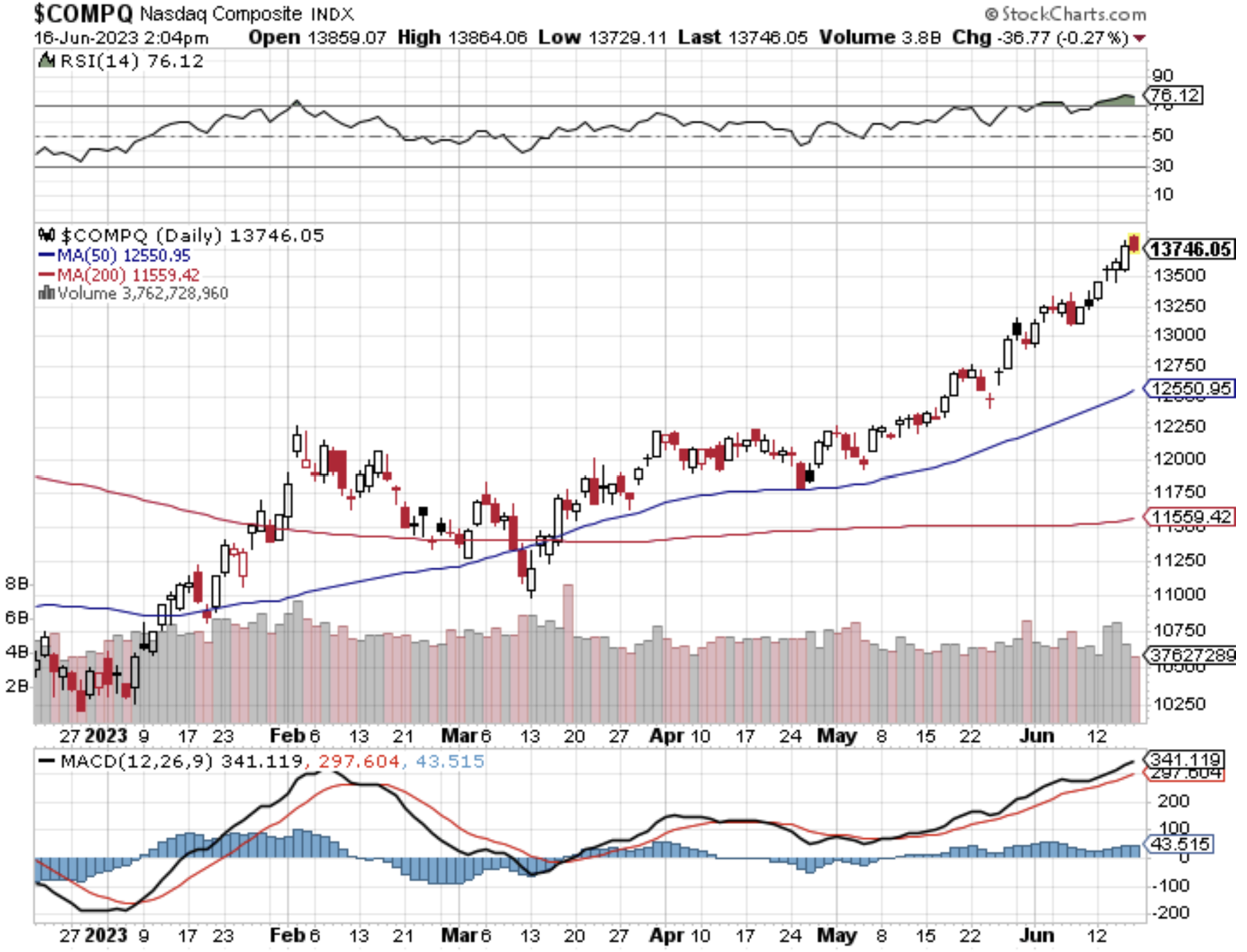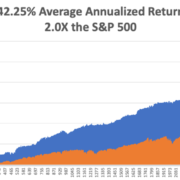The Skinny on AI
(CRM), (NVDA), (MSFT), ($COMPQ)
One misunderstanding about generative artificial intelligence is that it is advertised as the panacea that will cure the economy and global business in one second.
It’s not.
These types of technologies take time to absorb and integrate.
The type of hype surrounding AI feels like every tech company should 100X revenue next year.
That’s not going to happen right away.
It’s obviously going to be an incremental phenomenon instead of a parabolic rise.
People also seem to miss there will be a swath of AI failures that will disappear into the dustbin of history and everything in between.
Just because Nvidia (NVDA) and Microsoft (MSFT) are making hay during this hot money AI investor pandemonium, doesn’t mean all tech companies will.
In the long term, access to high-quality artificial intelligence will unlock a long-term productivity miracle.
The United States economy is suffering from a bout of unproductivity as young workers mostly spend their time perusing Instagram than tangibly delivering results.
Moving a finger is a hard slog these days for Generation Z.
The net result is poorly trending productivity gains.
Productivity growth in the US has been a paltry 1%.
This week alone brought two examples of generative AI's potential for economic output.
First, a new McKinsey study identified 63 generative AI use cases spanning 16 business functions that could unleash $2.6 trillion to $4.4 trillion in economic benefits annually.
The same study found that generative AI could perform each of more than 2,100 detailed work activities such as communicating with others about operational plans.
Generative AI has the potential to change the anatomy of work, augmenting the capabilities of individual workers by automating some of their individual activities.
Current generative AI and other technologies have the potential to automate work activities that absorb 60 to 70 percent of employees’ time today.
Meanwhile, software company Salesforce (CRM) launched its new GPT enterprise products designed to boost worker productivity.
The company introduced "AI Cloud" at a New York City investor day. Salesforce says its AI Cloud product will allow marketers to auto-generate personalized content for customers and developers to auto-generate code.
Salesforce employees also showed off coming AI functions in the workplace collaboration platform Slack.
It’s true that this AI wave is going to be the biggest that anyone has ever seen, but it will take time to get there.
I think there are meaningful lags in AI's impact. And the idea there will be a surge in economic growth in the next seven to ten years because of AI and technology.
It won’t happen in 2 or 3 years.
Goldman Sachs estimated recently that generative AI could expose the equivalent of 300 million jobs globally to automation over the next decade. That's a nice way of saying a person may lose their job to a robot.
AI could also eventually increase the annual global Gross Domestic Product (GDP) by 7%.
There is the thought that AI will make production faster and more voluminous but the quality and understanding will be poor. Just like all those online chat assistants that companies use. If you have a very specific question not covered by the FAQs they just spit back unhelpfulness.
The takeaway is that there will be winners and losers, but it will take time.
In many cases, the outsized winner is someone we have never heard of that brings something new to the table.
A critical part of this investor play is to avoid AI failures as well because there is bound to be a pile of body bags on the way to AI riches.




